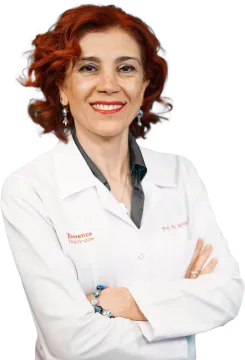
What is the Voice and Speech Disorders Department and Which Diseases Does It Cover?
The Voice and Speech Disorders department is a specialized field of health that diagnoses, evaluates and treats communication problems. This department deals with voice, speech, language and swallowing disorders that occur due to a variety of causes.
This department plays a vital role in the diagnosis and treatment of communication problems. Early intervention and correct treatment approaches can significantly increase the quality of life of patients. Research in this field continuously increases the effectiveness of treatment methods and contributes to the development of new approaches.
About the Voice and Speech Pathology Department
The Voice and Speech Disorders department is a field of expertise that works with a multidisciplinary approach and aims to improve the communication skills of its patients and increase their quality of life. According to research, early intervention and treatment can improve communication disorders by up to 70%. This department serves all age groups from infancy to adulthood.
This important department deals not only with speech and voice disorders, but also with swallowing difficulties, hearing problems and communication problems of neurological origin. The expert team creates customized treatment plans according to the individual needs of each patient and manages the diagnosis and treatment processes using the latest technological developments. The department's aim is to help patients overcome the communication barriers they encounter in their daily lives and to increase their social participation. In addition, it contributes to scientific developments with continuing education and research activities and constantly strives to improve the quality of patient care.
Who is a Voice and Speech Pathologist and What Are Their Duties?
A speech and voice pathologist, often called a "speech and language pathologist," is a healthcare professional with special training in communication disorders.
Among the duties of these specialists are:- Diagnosis and evaluation of communication disorders,
- Creating and implementing treatment plans,
- Providing counseling services to patients and their families,
- There is development of preventive programs.
What Diseases Are Included in Voice and Speech Disorders?
The department of voice and speech disorders covers a wide range of diseases:
- Articulation disorders
- Fluency disorders (stuttering)
- Voice disorders (dysphonia)
- Language disorders
- Speech disorders due to hearing loss
- Speech disorders of neurological origin (aphasia, dysarthria)
- Swallowing disorders (dysphagia)
What are Voice and Speech Disorder Examinations?
Voice and speech disorder examinations may vary depending on the patient's specific complaints and condition, but in general the following examinations are performed:
- Voice analysis: Evaluation of voice quality, pitch, and volume.
- Articulation test: Evaluation of correct production of sounds.
- Language assessment: Measuring comprehension and expression skills.
- Fluency assessment: Examination of the fluency of speech.
- Oral-motor assessment: Examination of the structure and function of the speech organs.
- Swallowing assessment: Examination of swallowing function.
What Methods Are Used in the Treatment of Voice and Speech Disorders?
Treatment methods vary depending on the type and severity of the disorder.
The main treatment methods can be listed as follows:- Articulation therapy: Teaching correct production of sounds.
- Language therapy: Improving language skills.
- Fluency therapy: Treating fluency disorders such as stuttering.
- Voice therapy: Improving voice quality and production.
- Swallowing therapy: Ensuring safe and effective swallowing.
- Augmentative and alternative communication (AAC): Using communication devices.
What is done during a voice and speech disorder examination?
The voice and speech disorder examination involves a comprehensive evaluation process. This process begins with a detailed history to understand the patient's past and current condition. Then, a physical examination is performed and the speech organs are examined. The patient's language skills, voice quality and speech fluency are evaluated by applying standardized tests. During the examination, the patient's speech and voice samples are recorded and these recordings are then subjected to detailed analysis. In necessary cases, imaging methods such as videostroboscopy may be used to examine the vocal cords and throat structures more closely. After all these steps, the specialist evaluates the results obtained and creates a treatment plan that suits the patient's needs.
When Should You Go to the Voice and Speech Disorders Department?
There may be various situations to apply to the Voice and Speech Disorders department. In children, if speech development appropriate to their age is not observed, a specialist should definitely be consulted. In adults, it is important to apply to the department in case of a continuous change in voice quality or long-term hoarseness. Stuttering or other fluency problems are also conditions that require expert evaluation. Individuals with swallowing difficulties should apply to the department to determine the underlying causes of this problem. In addition, deterioration in speech and language skills after trauma or illness may also require expert intervention. Finally, speech problems that occur due to hearing loss are also within the scope of the Voice and Speech Disorders department and it is recommended to apply to the department in these cases.

